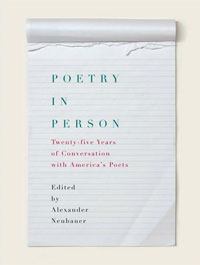Conversations With Poets

Pearl London was a beloved teacher and writer at the New School. In 1970, she started to invite guests to her seminar that over 25 years became called “Works in Progress.” Guests included Maxine Kumin, Robert Hass, June Jordan, Galway Kinnell, Muriel Rukeyser, Charles Simic, Ann Carson, Paul Muldoon, Robert Pinsky, John Ashbery, Adrienne Rich, Robert Creeley, W. S. Merwin, Mark Strand, Derek Walcott, Frank Bidart, Amy Clampitt, Lucille Clifton, Edward Hirsch, Li-Young Lee, Philip Levine, James Merrill, and more.
Apparently, London unobtrusively recorded these sessions, and the tapes were recovered after her death in 2003 and edited by fellow New School mentor Alexander Neubauer, and 23 of these chats are now available in Poetry in Person: Twenty-five Years of Conversation with America’s Poets (Knopf).
Explains Neubauer:
I am struck by the notion that even if one finds some poetry and some poets inaccessible that these conversations are sufficiently lively and engaging to warrant serious and devoted attention. One never know, do one?
